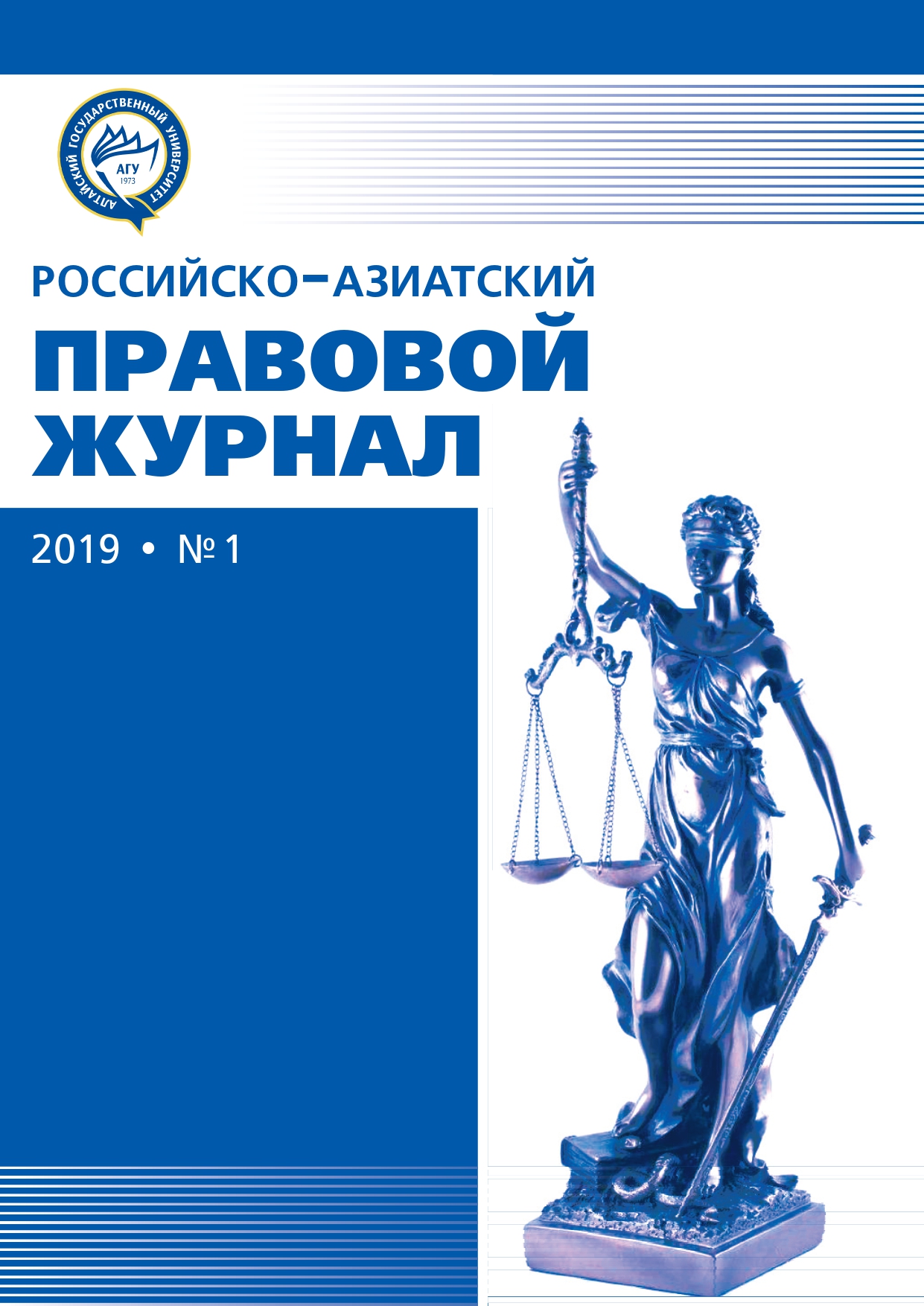LEGAL REGULATION OF ROBOTICS AND ARTIFICIAL INTELLIGENCE IN THE EUROPEAN UNION
УДК 340.5 ВВК 67.9
Abstract
The article is devoted to a critical review of the European Parliament Resolution of February 16, 2017on the regulation of relations in the field of robotics. The authors analyze the approaches of the developersof the draft law in terms of endowing autonomous robots with the quality of a subject of law and note theadherence to the principle of caution in deciding on liability for harm caused by robots. The paper concludesthat the concept of the subject of law and the possibility of endowing robots with artificial intelligencewith the qualities of a legal or electronic entity are debatable. First of all, the legal personality of robotsraises the problem of responsibility and protection of the rights of victims. The resolution of the European Parliament emphasizes the need for such a legal structure that will ensure the harmonization of the interestsof developers and sellers of autonomous robots, users and victims — the imposition of liability on themanufacturer or liability insurance.
Downloads
References
Гаджиев Г.А. Является ли робот-агент лицом? (поиск правовых форм для регулирования цифровой экономики) // Журнал российского права. 2018. №1. С. 29–35.
Архипов В.В., Наумов В.Б. О некоторых вопросах теоретических оснований развития законодательства о робототехнике: аспекты воли и правосубъектности // Закон. 2017. N 5. С. 157–170.
. European Parliament. REPORT with recommendations to the Commission on Civil Law Rules on
Robotics (2015/2103 (INL)). Debates,15 February 2017. Available at: http://www.europarl.europa. eu/ sides/getDoc.do?type=CRE&reference=20170215&secondRef=ITEM-014&language=EN&ring =A8– 2017–0005 (дата обращения: 01.02.2019).
Морхат П.М. К вопросу о правосубъектности «электронного лица» // Юридические исследования. 2018. №4. С. 1–8. DOI: 10.25136/2409–7136.2018.4.25647.
Морхат П.М. Юнит искусственного интеллекта как электронное лицо // Вестник Московского государственного областного университета. Серия: Юриспруденция. 2018. №2. С. 66–73.
Schrijver S. de The Future Is Now: Legal Consequences of Electronic Personality for Autonomous Robots. In: Who’s Who Legal, 2018. Available at: http://whoswholegal.com/news/features/article/34313/future-now-legal-consequences-electronic-personality-autonomousrobots (accessed: 02.04.2018)
Гаджиев Г.А., Е.А. Войникас Может ли робот быть субъектом права? (поиск правовых форм для регулирования цифровой экономики) // Право: журнал Высшей школы экономики. 2018. №.4. С. 41–48.
Russian-Asian Law Journal is a golden publisher, as we allow self-archiving, but most importantly we are fully transparent about your rights.
Authors may present and discuss their findings ahead of publication: at scientific conferences, on preprint servers, in public databases, and in blogs, wikis, tweets, and other informal communication channels.
Russian-Asian Law Journal allows authors to deposit manuscripts (currently under review or those for intended submission) in non-commercial, pre-print servers such as ArXiv.
Authors who publish with this journal agree to the following terms:
- Authors retain copyright and grant the journal right of first publication with the work simultaneously licensed under a Creative Commons Attribution License that allows others to share the work with an acknowledgement of the work's authorship and initial publication in this journal.
- Authors are able to enter into separate, additional contractual arrangements for the non-exclusive distribution of the journal's published version of the work (e.g., post it to an institutional repository or publish it in a book), with an acknowledgement of its initial publication in this journal.
- Authors are permitted and encouraged to post their work online (e.g., in institutional repositories or on their website) prior to and during the submission process, as it can lead to productive exchanges, as well as earlier and greater citation of published work (See The Effect of Open Access).








